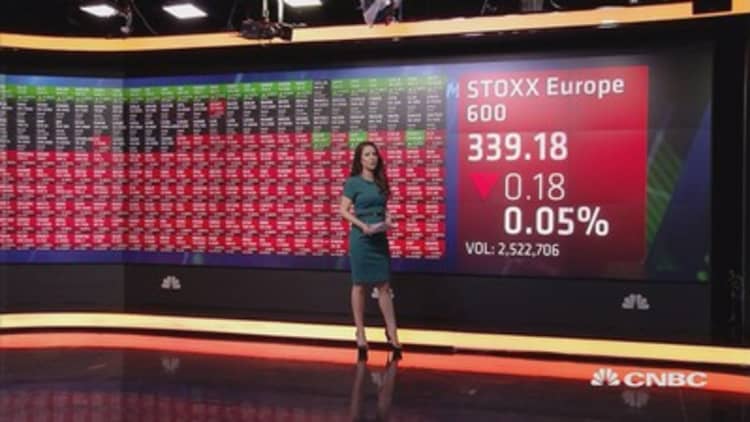
Expectations that the European Central Bank (ECB) will announce a six-month extension of its massive, trillion-euro bond-buying program on Thursday have risen in the wake of Italy's outright rejection of proposed constitutional reforms in Sunday night's referendum.
Prior to the vote, a Reuters poll from last Thursday cited 52 of 60 economists saying they expected the ECB to announce an extension to its quantitative-easing (QE) program beyond the currently scheduled end date of March 2017.
Of those anticipating an extension, the overwhelming majority of those polled see the program being extended by six months to September 2017 at the current pace of 80 billion euros ($85 billion) per month. Around a quarter of respondents, however, expect the prolonged timing to be accompanied by a reduction in the pace of purchases by either 10 billion euros or 20 billion euros per month.
A speech by ECB President Mario Draghi last Wednesday -- alongside unsubstantiated media reports first reported by Reuters -- that the ECB would step in to purchase Italian debt in the case of extreme volatility in the country's bond yields, lent reassurance to investors that the central bank was on guard to act should the referendum outcome precipitate a renewed burst of market jitters.
Therefore the combination of a No vote being largely priced in by markets ahead of the weekend and the widely held belief that the ECB stands ready to use its toolkit to offset any potentially exaggerated market reactions, is seen as the key factor in ensuring the 10-year Italian government bond yield rose by only a measured amount to just over 200 basis points in early Monday morning trade, rather than to the blowout levels feared by some observers.
However, the ECB's incentive to press on with additional easing to help stabilize financial markets must be weighed against economic realities. The overall euro zone economy is developing largely as expected since the release of its September forecasts and reasonably buoyant surveys heading into the fourth quarter.
According to various analysts, while the consensus overwhelmingly anticipates further easing, the ECB faces conflicting considerations.
A research note from the team at Société Générale last week poses the dilemma as: "The favourable economic outlook limits the case for additional ECB easing. On the other hand,the still-uninspiring development of core inflation and high policy uncertainty gives the ECB no grounds for sounding hawkish."
Meantime, analysts at Mizuho see the risk of limiting supportive action as too high.
According to a research note from the team from Friday, "The asymmetry is bluntly thus: either the ECB extends QE or the probability of a euro market crisis rises significantly. With 2017 being high on political event risk, we think the latter would be actively positioned for by investors if QE was to be prematurely pared back."

Turning to another focus for Monday's markets, the eurozone's currency tested lows last seen in March 2015, dropping to nearly 1.05 to the U.S. dollar before recovering at market open (9am CET) to head back up to levels around its previous close.
However, according to Richard Cochinos, head of european G10FX strategy at Citi, investors will need to wait a while longer before seeing the full implications of the Italian referendum outcome.
"Over the medium term it does create an environment where investors are just going to be uncertain and that uncertainty is going to limit their investment," he told CNBC's Squawk Box on Monday.
"It'll limit the investment in European equities, in European fixed income and ultimately that's what becomes the euro's negative driver," he warned.
As Draghi joins Eurogroup ministers gathering Monday in Brussels for a meeting where Greece and its debt situation are set to top the agenda, the market has an ear open for any indicative comments from the President ahead of Thursday's ECB meeting.


